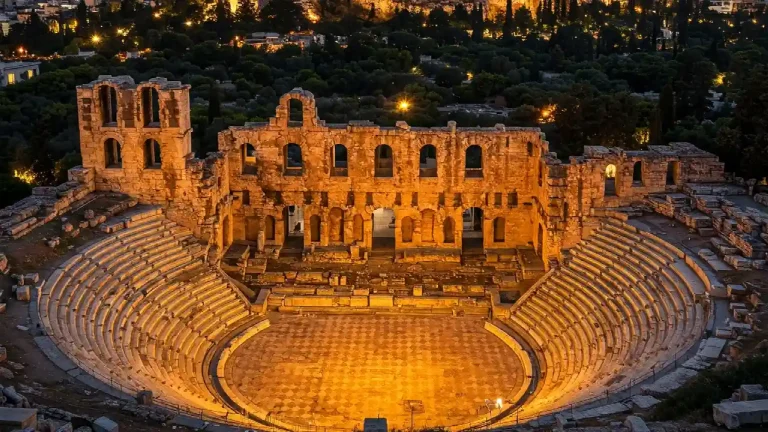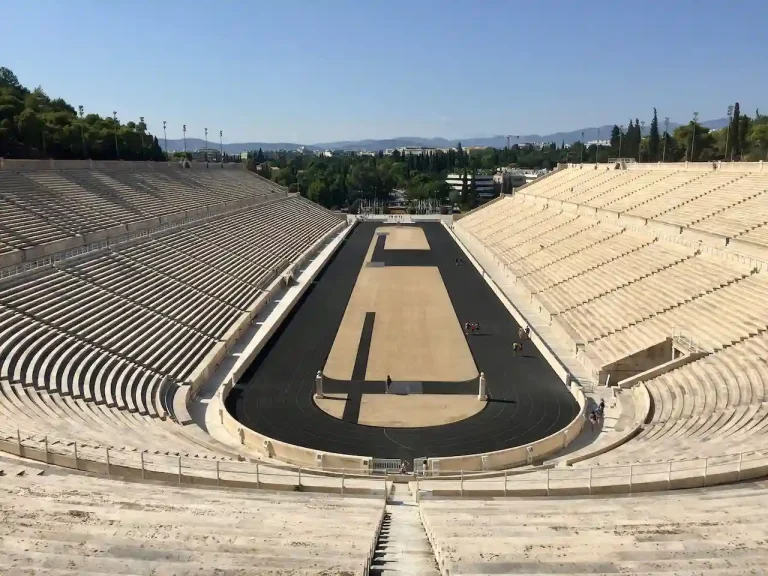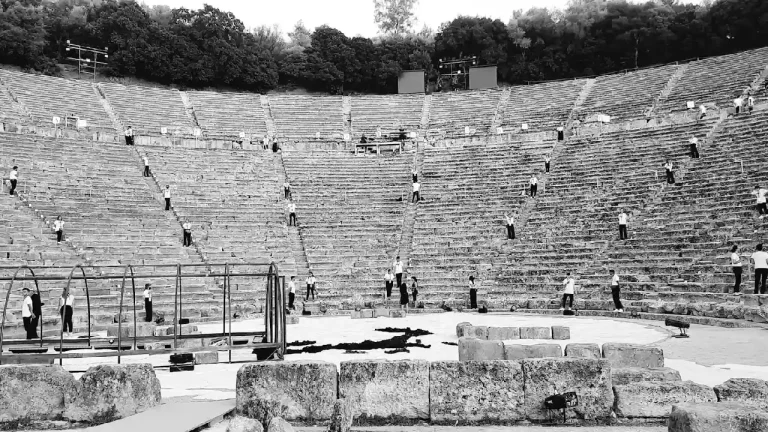Your Complete Guide to the Athens Greece Marathon 2025
The Athens Greece Marathon, often referred to as the “Athens Classic Marathon” or “The Authentic Marathon,” is a historic race that combines athleticism, culture, and history. As the birthplace of the modern marathon, Athens offers a unique experience for runners and spectators alike. Whether you’re preparing for the Athens Greece Marathon 2025 or simply want to learn more about this world-renowned event, this guide covers every detail from the route to qualification requirements.
1. What is the Athens Greece Marathon?
The Athens Greece Marathon is more than just a race—it’s a celebration of history, endurance, and community. It retraces the legendary journey of Pheidippides, the ancient Greek soldier who ran from the town of Marathon to Athens to deliver the message of victory in the Battle of Marathon.
Every year, thousands of participants from across the globe gather to take part in this prestigious event, known officially as the Athens Classic Marathon: The Authentic.
2. Athens Classic Marathon: The Authentic Legacy
The Athens Classic Marathon is called “The Authentic” because it follows the original route that inspired the modern marathon. The race embodies the spirit of the ancient Olympic Games and symbolizes the triumph of human determination.
Key facts about the Athens Classic Marathon:
- First held in its modern form in 1972.
- Recognized as one of the most challenging and rewarding marathons in the world.
- Celebrates Greece’s cultural and historical heritage.
Athens Marathon 2025 Date: When to Mark Your Calendar
The Athens Greece Marathon 2025 is scheduled to take place on Sunday, November 9, 2025, aligning with its traditional early November slot. This annual event is a key highlight in the international marathon calendar, drawing thousands of participants and spectators from across the globe.
Key Details:
- Event Date: Sunday, November 9, 2025
- Start Time: 9:00 AM local time (subject to confirmation by organizers)
- Registration Opens: Spring 2025 (Exact date to be announced on the official site)
- Location: Start in the town of Marathon, finish at the Panathenaic Stadium in Athens
Athens in November offers cool, runner-friendly temperatures, making it an ideal time for both competitive athletes and recreational runners. Participants are advised to book accommodations early and register promptly on the Athens Classic Marathon official site to secure their spot in this iconic race.
For the most up-to-date information on schedule changes, travel recommendations, or safety protocols, it’s best to monitor the event’s announcements on authenticmarathon.gr.
3. Athens Marathon 2025 Route Overview
The Athens Marathon 2025 route spans 42.195 kilometers (26.2 miles) from Marathon to Athens. The route begins in the historic town of Marathon, passes through several picturesque towns and villages, and ends at the iconic Panathenaic Stadium in Athens.
Key landmarks along the route:
- Marathon Tomb (starting point).
- Nea Makri, a scenic coastal town.
- Athens suburbs, offering glimpses of local life.
- The Panathenaic Stadium, a historic site that hosted the first modern Olympic Games in 1896.
4. Athens Classic Marathon Distance
The Athens Classic Marathon follows the standard marathon distance of 42.195 kilometers. This distance was standardized by the International Association of Athletics Federations (IAAF) in 1921 and has since become the benchmark for all official marathons.
5. Athens Classic Marathon Elevation Profile
The Athens Classic Marathon elevation profile is notorious for its challenging terrain, with a significant uphill stretch from kilometers 10 to 31. However, the final 10 kilometers are primarily downhill, offering some relief to runners as they approach the finish line.
- Start (Marathon): Approximately 50 meters above sea level.
- Highest Point (Gerakas): 245 meters above sea level at kilometer 31.
- Finish (Athens): 90 meters above sea level.
6. Qualifying for the Athens Greece Marathon
Unlike some major marathons, the Athens Greece Marathon does not require participants to meet strict qualifying times. However, runners must be at least 18 years old on race day. It’s recommended to register early as spots fill quickly.
7. Athens Classic Marathon Route Highlights
The route offers a mix of history, nature, and urban scenery. Key highlights include:
- The Marathon Tomb: A monument commemorating the fallen soldiers of the Battle of Marathon.
- Schinias National Park: A lush area near the starting point.
- Rafina: A charming port town along the route.
- Gerakas: The most challenging uphill section.
- Panathenaic Stadium: A breathtaking finish in the marble stadium used in the first modern Olympics.
8. The Finish Line: A Symbolic Ending
The Athens Classic Marathon finish line at the Panathenaic Stadium is a sight to behold. Constructed entirely of marble, the stadium is steeped in history and serves as the perfect backdrop for celebrating the achievements of every runner.
9. How to Register on the Athens Classic Marathon Official Site
To secure your spot, visit the Athens Classic Marathon official site at athensauthenticmarathon.gr/en/. Registration typically opens several months in advance, and runners can choose between:
- Full marathon.
- 10K road race.
- 5K road race.
10. Training Tips for the Athens Marathon
The Athens Marathon’s challenging elevation profile requires strategic training. Tips include:
- Incorporating hill workouts to build strength.
- Practicing long runs on varied terrain.
- Hydration and nutrition planning to tackle the Greek climate.
11. Spectator Information: What to Expect
Spectators are encouraged to line the streets and cheer for participants. Popular spots include:
- Marathon Tomb for the starting festivities.
- Nea Makri for its vibrant atmosphere.
- Panathenaic Stadium to witness runners cross the iconic finish line.
12. Best Places to Stay Near the Marathon Route
Convenient accommodations include:
- Marathon Area: Ideal for easy access to the starting point.
- Nea Makri: A quieter option with seaside hotels.
- Athens City Center: Perfect for those who want to explore the city post-race.
13. The Historical Significance of the Marathon in Athens
The marathon commemorates Pheidippides’ legendary run in 490 BCE and highlights Greece’s pivotal role in shaping modern sports.
14. Must-See Landmarks Along the Marathon Route
- Marathon Tomb.
- Schinias Beach.
- The Temple of Olympian Zeus in Athens.
- The Acropolis and Parthenon, near the finish line.
15. Athens Greece Marathon 2025: Key Dates and Updates
The Athens Greece Marathon 2025 is expected to take place in early November. Stay updated by visiting the official website or following social media channels.
16. FAQs About the Athens Greece Marathon
Q1: What is the Athens Classic Marathon distance?
The distance is 42.195 kilometers (26.2 miles).
Q2: Is the Athens Marathon challenging?
Yes, the uphill sections between kilometers 10 and 31 make it one of the more demanding marathons.
Q3: Where can I register for the Athens Greece Marathon 2025?
Visit the official site at athensauthenticmarathon.gr/en/
Q4: What is the Athens Classic Marathon elevation profile like?
It includes a steady incline from kilometers 10 to 31, followed by a downhill stretch to the finish.
Q5: What is the significance of the Panathenaic Stadium?
The stadium is a historic venue that hosted the first modern Olympics in 1896 and serves as the marathon’s finish line.
Q6: Do I need to qualify for the Athens Marathon?
No, but participants must be at least 18 years old.
Conclusion
The Athens Greece Marathon is a one-of-a-kind experience that combines physical endurance with a journey through history. Whether you’re planning to participate in the Athens Greece Marathon 2025 or simply spectate, this event promises memories to last a lifetime.








